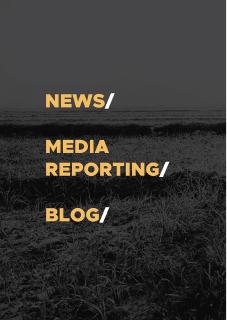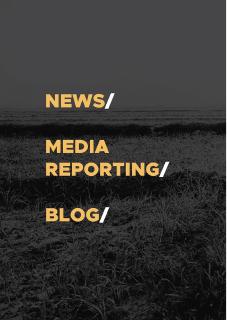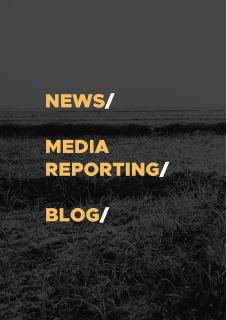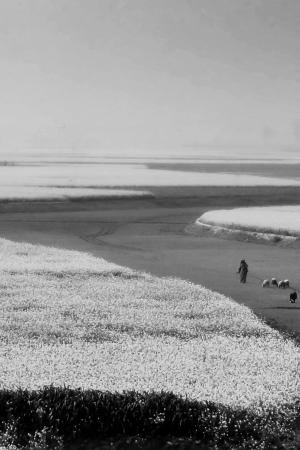“My 6-year-old daughter was suffering from a cold and severe ear pain. I went to government hospital for treatment, but I did not get the hospital ticket when I said my address was Mirpur Bihari camp”.
Bihari woman
KEY ISSUES
- Despite their right to nationality being recognised in 2008, the Urdu-speaking Bihari minority continue to face discrimination in access to citizenship rights, with many unable to access civil registration services or passports.
- Although the nationality law provides for access to nationality for children born on the territory, this is not applied in practice, perpetuating intergenerational statelessness. The law does not contain specific safeguards for children who would otherwise be stateless or for foundlings.
- Following law reform in 2009, women can pass nationality to their children on the same terms as men, but there is still gender discrimination in the transmission of nationality to a foreign spouse.
- Rohingya refugees hosted by Bangladesh are treated as irregular migrants and have no meaningful protection. They are denied basic rights and services, have little security, and are regularly pressurised to return to Myanmar despite it being unsafe to do so.
- Bangladesh is not a state party to either the 1954 or 1961 Statelessness Conventions and has no statelessness determination or protection framework in place. Nor is Bangladesh a party to the 1951 Refugee Convention, with significant implications for the Rohingya.
STATELESSNESS IN BANGLADESH
Stateless communities in Bangladesh are subject to both structural inequalities and widespread public prejudice that prevents them from enjoying their rights. This is the case for minority populations that have historically been affected by statelessness, as well as the many Rohingya refugees who have fled to Bangladesh from Myanmar in huge numbers and who are treated as irregular migrants.
According to UNHCR’s global statistics, at the end of 2023 there were 971,898 stateless people in Bangladesh, an increase of nearly 20,000 from the previous year. This number accounts only for the stateless Rohingya refugee population who reside in Bangladesh and who have been registered by UNHCR. There is no comprehensive data on the full scale of statelessness in the country. Bangladesh is not a party to either of the Statelessness Conventions and has no framework in place for the identification or protection of stateless people.
The Urdu-speaking minority community (sometimes referred to as Biharis) experienced many decades of statelessness, the legacy of which endures to this day. An estimated 300,000 members of this community reside in Bangladesh, approximately 151,000 of them living across 116 urban “camps” that were established after the independence war of 1971. They were denied recognition as Bangladeshi citizens following the country’s independence, due to their perceived connection with Pakistan. However, in 2008, Bangladesh’s Supreme Court recognised the community’s right to Bangladeshi citizenship in the case of Md. Sadaqat Khan and others v. Chief Election Commissioner. It ordered the issuance of ID cards and their inclusion on voter rolls. Yet community members still face structural inequality and discrimination in access to citizenship rights, with many unable to access civil registration services or passports. Access to education is limited because they face discrimination in the education system, with children often excluded from mainstream education, limiting opportunities for economic and social mobility. They are often also excluded from formal employment opportunities and are limited to low-paying jobs in the informal sector. This perpetuates their poverty and limits their ability to access basic services and benefits. The community is not eligible for housing programmes provided by the Government or third parties, and the lack of formal land ownership also makes it difficult for them to access credit and other financial services. The COVID-19 pandemic magnified the problems faced, prompting a rise in discrimination and structural inequality, especially against members of the Urdu-speaking community who reside in the urban “camps”, showing the severity of their ongoing marginalisation in society.
Oppressive measures instituted by the authorities against the Rohingya refugee population are suspected to be a deliberate attempt to create conditions so desperate that refugees are forced to return to Myanmar, a country to which safe and voluntary return is not available. Particularly following the mass displacement of Rohingya refugees, Bangladesh has also tightened the documentation requirements for various essential documents, such as birth certificates, citizenship papers, national IDs, and passports. In certain regions, like Cox's Bazar, individuals are required to submit an affidavit as evidence of not belonging to the Rohingya community. To streamline the process and avoid additional complications, many people resort to using intermediaries or engaging in corrupt practices or bribery to obtain these documents.
THE RIGHT TO NATIONALITY IN BANGLADESH
The rules for acquisition and loss of Bangladeshi nationality are set out in the 1972 Constitution, 1951 Citizenship Act and 1972 Bangladesh Citizenship Order (later amended by the Bangladesh Citizenship Rules 1978). The law recognises both jus soli and jus sanguinis citizenship, providing that people born in the territory acquire citizenship unless their father is a diplomat or an enemy alien. However, in practice, the citizenship of a child is generally only recognised by the state if one or both parents are Bangladeshi citizens, shifting the application of the law towards jus sanguinis. There is no special provision to ensure the right to a nationality for children who are born in the country who would otherwise be stateless, nor for foundlings. Due to the inconsistent implementation of Bangladesh’s jus soli provisions, Rohingya refugees face intergenerational statelessness. The law also requires that if the parent of the child is a citizen by descent and the child is born abroad, the birth must be registered for citizenship to be obtained.
Women were previously unable to transfer citizenship to their children under Bangladeshi law. While this was rectified in 2009, the law is still gender discriminatory because women are not able to confer Bangladeshi citizenship to their foreign spouse.
In February 2016, the Cabinet of Bangladesh introduced a Draft Citizenship Bill which, if passed, would considerably increase the risk of statelessness. The Draft Bill does not provide protections against childhood statelessness; children born abroad who are not registered within two years lose their Bangladeshi citizenship; and children may lose their citizenship if a parent commits an act against the security of the state. There are also concerns that the Bill poses a threat to the 2008 ruling that affirmed the Urdu-speaking community to be citizens of Bangladesh, because Section 3 states that the Bill takes precedence above any other legal document, decree or judgment. It could open up the possibility of a reinterpretation of the legal status of the Urdu-speaking community, placing them once again at risk of statelessness.
Birth registration is required to access identification documents in Bangladesh. According to UNICEF, birth registration rates in Bangladesh improved from 10% in 2000 to 63% in 2019. However, a significant percentage of children in Bangladesh are still not registered at birth, which increases the likelihood that they will become stateless. Access to birth registration is a particular concern for the Urdu-speaking community who still struggle to have their status as citizens recognised. Structural discrimination and marginalization, poverty, language limitations and a lack of identification documents among the community all present barriers. Since the introduction of the online birth certificate application procedure in 2018, there is no longer a manual or paper application option. This digitisation has made getting a birth certificate more difficult for the Urdu-speaking community. Community paralegals are assisting the camp community to guide them through the online application procedure and some people receive assistance from a relative or the former clients of the community paralegals. Others, however, may turn to brokers or commercial companies and through exorbitant prices and false information, this reliance creates chances for corruption and abuse.
ROHINGYA REFUGEES IN BANGLADESH
The Rohingya community was arbitrarily stripped of citizenship in Myanmar in the 1980s. Violent persecution and acts of genocide have forced large numbers to flee their home country and seek safety abroad. According to official statistics, Bangladesh hosts almost a million Rohingya refugees. However, Rohingyas are treated in Bangladesh as irregular migrants instead of being recognised and protected as stateless refugees.
Rohingya refugees in Bangladesh reside primarily within the refugee camps in Cox’s Bazar. Their situation is precarious, with problems of overcrowding and limited access to essential services, including health, education and social services. Refugees are not allowed to work and are reliant on aid from the World Food Programme which, due to a funding shortfall, in 2023 was slashed from $12 per month to $10 and then to $8 in the space of a few months. The Bangladeshi authorities have failed to ensure safety and security within the camps and violence has been surging within the camps. The Government of Bangladesh has been relocating some residents of Cox’s Bazar to the remote island of Bhasan Char. Relocation is deemed unsafe due to the restricted mobility, limited infrastructure, and the exposure of the island to the severe impacts of climate change. Furthermore, the lack of access to food, water, education, healthcare, and movement has led to the description of Bhasan Char as “an island jail in the middle of the sea”. Nevertheless, as of October 2022, an estimated 30,000 Rohingya had been moved to Bhasan Char.
In 2014, the government instituted a ban on marriages between Bangladeshi citizens and Rohingya refugees. This policy was reinforced by a court order in 2018. Nevertheless, there have been reports of such marriages continuing to take place even after the ban. Given the current requirements for birth registration, which necessitate documentation from both parents along with their marriage certificates, children born to such couples face the potential risk of being rendered stateless despite having a Bangladeshi citizen parent. There are no restrictions on Bangladeshi citizens marrying individuals from other foreign nationalities except for Rohingya refugees.
There are currently no sustainable solutions to the enduring refugee issue. Safe and voluntary repatriations are not possible in Myanmar due to the country's human rights condition, and yet Bangladesh has initiated a repatriation pilot project. In 2023, the UN Special Rapporteur on human rights in Myanmar issued a press release in response to emerging reports that Bangladeshi authorities were using “deceptive and coercive measures” to compel Rohingya refugees to return to Myanmar. Human Rights Watch stated that Bangladesh is “squeezing the Rohingya camp residents economically, abusing their rights, and making the refugees as miserable and desperate as possible” to force them into accepting the offer of repatriation.
BANGLADESH’S INTERNATIONAL COMMITMENTS
Bangladesh is not a signatory to either the 1954 or 1961 Statelessness Conventions, nor has it acceded to the 1951 Refugee Convention. Bangladesh has acceded to the CRC, ICCPR, CEDAW, ICERD, CRPD and ICRMW for which it maintains no reservations in relation to the provisions on nationality. For more information on regional standards and intergovernmental commitments in Asia and the Pacific, see the StatelessHub Asia and the Pacific page.
- Click here to see Recommendations that Bangladesh has received through the Universal Periodic Review.
- Click here to see Recommendations that Bangladesh has issued through the Universal Periodic Review.
- Click here to see voluntary pledges have been made by Bangladesh.
The content on this page was developed in collaboration with Nationality For All and the Council of Minorities. The page was reviewed by Ali Johar and Khalid Hussain.
[Last updated November 2023]
Cover image by Manzur Alam
Further reading
VOICES & EXPERIENCES
-
The impact of COVID-19 for the Urdu-speaking community in Bangladesh
![Bangladesh]()
The impact of COVID-19 for the Urdu-speaking community in Bangladesh
![Bangladesh]()
“My 6-year-old daughter was suffering from a cold and severe ear pain. I went to government hospital for treatment, but I did not get the hospital ticket when I said my address was Mirpur Bihari camp. The registrar refused me and said, “camps and camp dwellers are most vulnerable for the corona virus.”
Affected person
The Urdu-speaking minority community (sometimes referred to as Biharis) experienced many decades of statelessness, the legacy of which endures to this day. Despite their right to nationality being recognised in 2008, they continue to face discrimination in access to citizenship rights, with many unable to access civil registration services or passports. They also face poor sanitation conditions, inadequate access to clean water, inadequate housing, high levels of poverty and unemployment, and poor access to education. Members of this community, in particular, those living in the ‘refugee camps’, were at heightened risk during the COVID-19 pandemic because of their living conditions and lack of access to services.
Voice from https://files.institutesi.org/together_we_can_report_2021.pdf
-
Insecurity and exploitation for Rohingya in Bangladesh’s refugee Camps
![Bangladesh]()
Insecurity and exploitation for Rohingya in Bangladesh’s refugee Camps
![Bangladesh]()
“What the Rohingya community is facing in terms of trafficking, detention and exploitation is linked to the statelessness that has been forced on them. The dangerous sea and land journeys Rohingyas are compelled to or forced to take are just because the Rohingyas don’t have travel documents. And they don’t have livelihood opportunities in Myanmar or Bangladesh. They also don’t have development opportunities including education or life skills development in refugee camps in Bangladesh or Myanmar. For example, many women who are being trafficked to Malaysia go there just to get married. If they had a travel document from Myanmar, they wouldn’t have to take risky journeys. They are forced to. That’s where the exploitation begins.”
Rohingya Human Rights Defender
The Rohingya community was arbitrarily stripped of citizenship in Myanmar in the 1980s. Violent persecution and acts of genocide have forced large numbers to flee their home country and seek safety abroad. According to official statistics, Bangladesh hosts almost a million Rohingya refugees. However, Rohingyas are treated in Bangladesh as irregular migrants instead of being recognised and protected as stateless refugees. The lack of access to legal status or the right to work, and with children and youth prevented from accessing formal education and training, has driven men and women into precarious work in the informal sectors of the economy with few safety standards, often exposed to exploitation and with no access to social safety nets.
-
Exclusion in the Urdu-speaking community
![Bangladesh]()
Exclusion in the Urdu-speaking community
![Bangladesh]()
“I am studying in Peer-Yamini school where all the students are local Bengali except me. I am the only Bihari, so nobody wants to accompany with me. I live in a small hut with my family, and use our bed for studying and sleeping. Because our hut is in a camp, no one wants to come to my house.”
Affected person
Bangladesh is home to several stateless communities including the Urdu-speaking community, also known as the Biharis, and the Rohingya. No one knows exactly how many stateless children live in Bangladesh, but they face a lot of problems when it comes to enjoying their rights. For example, they are often not allowed to go to school and learn new things, to get health care when they need it, and live in a stable and secure home with their family.
Voice from ISI Instagram page
Latest Resources: Bangladesh
-

Blog: Cox’s Bazaar: Insecurity, Criminality and Rohingya Women
Type of Resource: News/ Media reporting / Blog
Theme: Women
Region: Asia / Pacific
View -

Article: "We Have A Right To Live In Dignity:" Biharis In Bangladesh Fight For Equality- And Jobs
Type of Resource: News/ Media reporting / Blog
Theme: Discrimination
View -

Article: Urdu-speaking People In Bangladesh Seek Land Ownership For Rehabilitation
Type of Resource: News/ Media reporting / Blog
Theme: Discrimination
View



